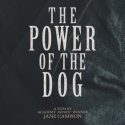Last year, I watched a movie on Netflix, named “The Devil All the Time.” It took place in rural America during the World War years of the 20th century. Overall, it was a well-acted, well-made film that mostly kept my attention, throughout. My expectations for Netflix movies has steadily begun to rise and that film was a part of that ascension, for me. I would be lying if I said, though, that 2020 was a stellar year for movies. Thankfully, 2021 has been an improvement. As you might be aware of, this is that time of the year when nearly all of the big studios are attempting to push out the Oscar-baited titles and award-worthy material for the upcoming trophy season. Netflix is, now, in the running, and likely will be for years to come.
I brought up the film as I did for one reason: I was reminded of it just moments into watching “The Power of the Dog,” the latest Netflix original, directed and written by Jane Campion (“Bright Star”), who, also, helped to produce this project. I would like to add that this is the first time she has done all three of those things for a feature-length presentation. Keep in mind, this movie was based on the material of a 1967 novel, going by the same name, which was authored by Thomas Savage (“A Strange God,” 1974).
Western motifs are certainly not something new for American audiences and many fans have developed in all corners of the world, as well. You can see that just by looking at whom was involved with this particular story, alone: a New Zealand filmmaker, an English actor for the top billing in the cast and a mix of Australian and Canadien producers, just to list a few examples. However, the Unites States has maintained the top spot in creating stories and products for Western lovers and why not? It originated here. So, what originality can still be brought to the table? I aim to find out!…
Right away, “The Power of the Dog” reminded me of 2007’s “There Will be Blood.” I think that this is really a more fair comparison, compared to my previous mentionable. You see, the story takes place in the early 1900s and the setting is that of Montana, with a heavy air of something foreboding. Overall, the music is stress-inducing and depressing in nature. So, why do I get such a different experience here, compared to “There Will be Blood?”
I thought about all this and concluded that it had something to do with the acting, coupled by the direction. I happen to know that Benedict Cumberbatch (“1917”), who played Phil Burbank, is capable of showcasing great charisma on the big screen, but he showed a lot of restraint, here, and I think it might have hurt the underlying atmosphere of the tale being presented. Alongside Cumberbatch was a familiar and solid cast, consisting of:
I happen to know that Benedict Cumberbatch (“1917”), who played Phil Burbank, is capable of showcasing great charisma on the big screen, but he showed a lot of restraint, here, and I think it might have hurt the underlying atmosphere of the tale being presented. Alongside Cumberbatch was a familiar and solid cast, consisting of:  Kirsten Dunst (“Woodshock”) as Rose Gordon, Jesse Plemons (“Jungle Cruise”) as George Burbank and Kodi Smit-McPhee (“2067”) as Peter Gordon, among a handful of other, familiar faces. Rose is a widowed woman who runs a café and quickly develops a drinking problem, while her son, Peter, malnourished in stature and awkward around strangers, openly studies medicine and nature. George and Phil enter both of their lives when they come around to do some ranching in the area and one of them marries the widow, while the other continues to keep to himself, until one day, he is exposed by a secret, which seemingly involves the affection for a dead man, named Bronco Henry.
Kirsten Dunst (“Woodshock”) as Rose Gordon, Jesse Plemons (“Jungle Cruise”) as George Burbank and Kodi Smit-McPhee (“2067”) as Peter Gordon, among a handful of other, familiar faces. Rose is a widowed woman who runs a café and quickly develops a drinking problem, while her son, Peter, malnourished in stature and awkward around strangers, openly studies medicine and nature. George and Phil enter both of their lives when they come around to do some ranching in the area and one of them marries the widow, while the other continues to keep to himself, until one day, he is exposed by a secret, which seemingly involves the affection for a dead man, named Bronco Henry.
Imagine, if you will, a way of life that has existed since the early days of Biblical chronology, but has only, recently, become much more acceptable to most people around modern society. Whether you agree with that lifestyle or not, you have to at least admit that it could not have been an easy thing to live with in 1925 America, be it in the public or the private spheres. However, there have always been coping mechanisms for all sorts of conditions… “A man is made by patience and the odds against him.” It is just like a small rabbit being trapped under a bed of sticks, while two hunters await his next move from up above, but let us move on…
It took me some time to really get into the story I was watching. What I appreciated was the positive interactions of at least one, primary relationship, which did not go in the direction that so many stories have, in recent years.  However, the most-important relationship of all took a long time to develop and, in my view, lacked any real, emotional expressiveness, or depth, and was partially marred by the atmosphere of the movie, which I mentioned a bit earlier. It is important to understand that the music of a film, whether it be original or sourced, is its own character and it can drown out or upstage the other performances just as much as anyone else being depicted on screen. I felt that a disservice was done in that aspect.
However, the most-important relationship of all took a long time to develop and, in my view, lacked any real, emotional expressiveness, or depth, and was partially marred by the atmosphere of the movie, which I mentioned a bit earlier. It is important to understand that the music of a film, whether it be original or sourced, is its own character and it can drown out or upstage the other performances just as much as anyone else being depicted on screen. I felt that a disservice was done in that aspect.
“The Power of the Dog” is not too clear about what its title is trying to convey, but if you watch closely or have any familiarity with the book that it was based on, you probably will not have too much trouble putting the puzzle together. I liked the story, but longed for a more joyful display, even in the midst of melancholy details. In my opinion, a movie such as “There Will be Blood” did that successfully, so I know it is possible. I would predict that this might not have been the intention at all for those involved with the making of this plot, but if that is the case, then I firmly disagree with the approach. Going by the book does not always translate to a better movie. Just look at the modern remake of “Charlie and the Chocolate Factory” as a prime example, compared to its classic predecessor. Still, strong acting and cinematography go a long ways and Netflix has certainly adapted well, in that regard. See you soon, little doggies!

Director: Jane Campion
Screenwriter: Jane Campion
Based on: “The Power of the Dog,” by Thomas Savage
Starring: Benedict Cumberbatch, Kirsten Dunst, Jesse Plemons, Kodi Smit-McPhee, Thomasin McKenzie as Lola, Genevieve Lemon as Mrs. Lewis, Keith Carradine as Governor Edward and Frances Conroy as Old Lady
Distributors: Transmission Films (Australia and New Zealand) and Netflix (Worldwide)
Release date: September 2nd, 2021 (Venice), November 11th, 2021 (Australia and New Zealand), November 17th, 2021 (United States and United Kingdom) and December 1st, 2021 (Netflix)





